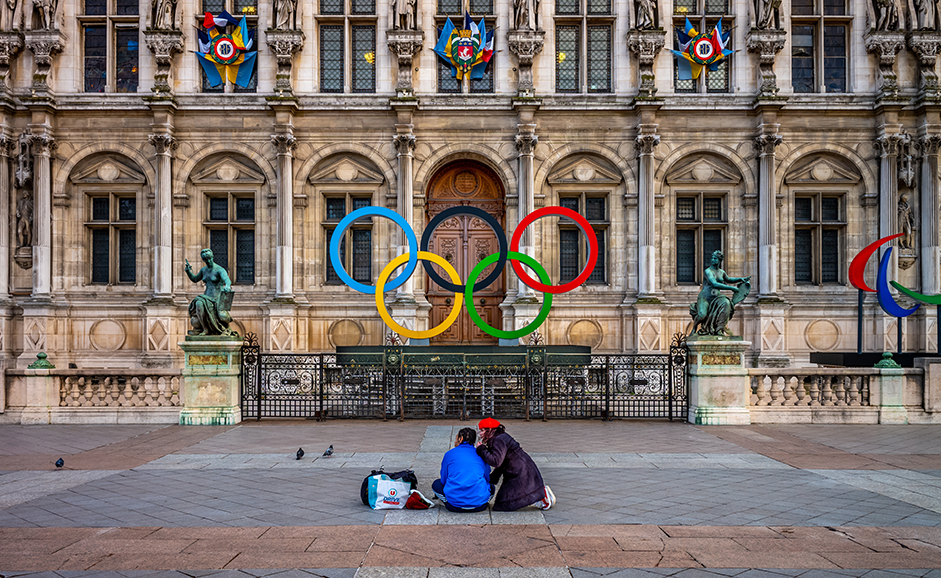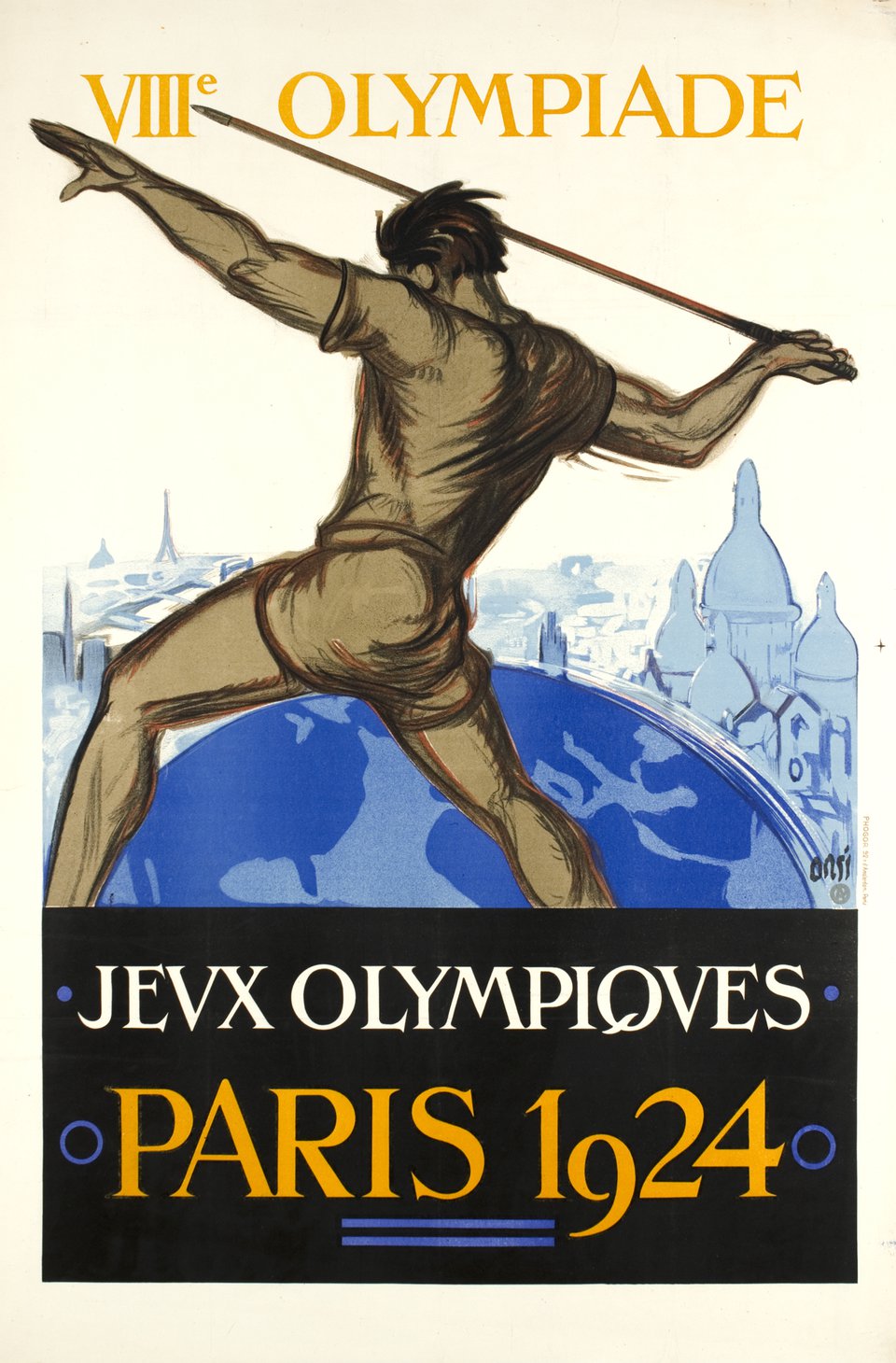Olympic Games: Rendez-vous in Paris 2024

The 2024 Summer Olympic Games will occur from 26 July to 11 August 2024 in the French capital. It will mark a significant milestone in Olympic history, as Paris was the host city for the Games a century ago in 1924. The centennial return of the Games to the ‘City of Lights’ presents an opportunity for reflection on the progress and transformation of the global sporting event. Officially designated in 2017 at the IOC Session in Lima, Hamburg, Rome, and Budapest were also in the running.
At the same time that Los Angeles was designated to organise the 2028 Olympic Games, and after the Olympics were celebrated in London, Paris became the second city to celebrate the Summer Olympic Games for the third time, one hundred years apart (1900, 1924 and 2024), with the Angelino city.

What’s new, and how will the event run
The “Paris 2024” project relies on 95% of existing or temporary sites, with an announced budget of €6.6 billion. The only facilities required are an aquatic centre to be built next to the Stade de France and a 7,500-seat indoor arena for basketball and wrestling at Porte de la Chapelle. In addition, the Olympic village will be built in L’Île-Saint-Denis, while the media village will be established in Dugny. Tony Estanguet, who headed the bid team with Bernard Lapasset, is taking over as chairman of the Paris 2024 Organising Committee for the Olympic Games, whose CEO is Étienne Thobois.
On 7 February 2018, they changed the calendar. The Olympic Games, which were initially scheduled to take place from 2 to 18 August, were brought forward by one week for organisational reasons. They will finally be held from 26 July to 11 August 2024. 206 countries and 10,500 athletes will take part. The mythical Olympic flame will be lit in Greece in the spring of 2024, before beginning its journey in Marseille, France, on 8 May 2024.

As far as the staging of events is concerned, rugby and golf – which were added to the programme for the 2016 Olympic Games – are being retained, as they were for 2020, partly because the list of 28 sports for the Paris Games must be identical to that for the two previous summer editions. However, one of the measures in the Olympic Agenda 2020, approved at the end of 2014 and already applied to the Tokyo Games, gives organisers the option of proposing new sports of their choice, which the IOC must approve.
The additional sports procedure took place at the beginning of 2019. The requirement was for sports that required few athletes, no additional infrastructure and that were popular with young people. The sports chosen were surfing, skateboarding, climbing, 3×3 basketball and breakdancing. The events would be held on the same site, Place de la Concorde, in a 35,000-seat arena, which would also be used for concerts and entertainment.
On 7 December 2020, the IOC Executive Board approved the program. Four additional sports were confirmed: surfing, skateboarding, climbing and breakdancing (the first three have already been on the agenda for the previous Tokyo Games). In addition, several changes were made to the events, resulting, on the one hand, in a reduction in the quota of athletes needed to decrease the complexity of organising the Games in the context of the pandemic, and on the other hand, in perfect parity for these Games, with as many men as women taking part.
Financial contributions
The initial budget was projected in 6.8 billion euros, and divided into two parts: the first part of 3.6 billion euros, corresponding to the cost of organising the Games, is financed by the private sector (1.2 billion euros in IOC grants, ticket sales for the Games, television rights, national sponsorship programme). The second part of 3 billion euros corresponds to the construction of the facilities and investments (Olympic village, Olympic swimming pool and media centre) and must be financed half by the private sector and half by the public sector.
Some economists refer to a “winner’s curse” phenomenon: each bidding city is forced to outbid the others with a project that is more lavish than the others, and the winner falls victim to the trend towards systematic cost overruns (the amount of the overruns represents on average 156% of the budget and even 176% for the summer games alone). The overruns relate mainly to the cost of organising the Games, excluding infrastructure, and in particular to the cost of security.
The Games could generate up to €10.7 billion in spin-offs – including €3.5 billion for tourism – and almost 250,000 permanent jobs, according to an impact study by the CDES. But these estimates do not consider several effects, notably the substitution effect (a tourist who comes to the Games will not come the following month). A report by the Inspectorate General of Finances submitted to the government in March 2018 pointed to a risk of overspending the Olympic bill by €500 million. In November 2022, Paris 2024 forecasted that 400 million euros would exceed the budget due to inflation, the additional cost of materials, and the organisation of the opening ceremony on the Seine.
Innovation and technology
“Transmitting the sights and sounds of the Olympic Games to the whole world is a task almost as Olympian as the exploits of the athletes themselves”. – Broadcasting the Olympics, Lausanne, IOC Publishing, 1999.
The Olympic Games are one of the most publicised events in the world, along with the Cannes Film Festival and the Football World Cup. Despite their strong appeal and media coverage, the Olympic Games call for ever greater creativity. To host this event, Paris has implemented a large-scale digital campaign. First of all, in 2015, five cities officially applied to host the 2024 Summer Olympics: Budapest, Hamburg, Los Angeles, Paris and Rome. Each of them proposed a project in line with the new ethical guidelines of the International Olympic Committee (IOC): innovation, respect for the environment and lower costs.
Paris’ communications for the 2024 Olympic Games campaign relied heavily on digital media. They have used both owned media (media that the brand owns and controls) and earned media (media that the brand benefits from free of charge on social networks, blogs and other personal spaces) as springboards for its bid.
The key strength of Paris 2024’s digital strategy was planning content based on the calendar of events linked to the Games award. This winning strategy was based on the richness and variety of digital content: with 73% of engagements, posts containing photos and videos attracted the most interest from Internet users. The strategy was also based on the number of subscribers generated, notably via Twitter (385k) and Facebook (645K).
Paris has placed technology and the smart city at the heart of its bid. Among the various start-ups selected to manage the bid, Placemeter came out on top in the “smart city” category. The computer vision technology developed by the company counts and differentiates between different means of travel.
By analysing this data, it is possible to estimate and anticipate the flow of people and test the influence of public space developments on these movements. The idea is to work with the autonomous electric shuttles to evolve into a hybrid between taxi and public transport. Their role would be to transport athletes to the Olympic Village on demand, using voice commands to stop the shuttle and board it anywhere on the site, then tell it where you want to go. These innovative start-ups will also help Paris to achieve the sustainable development goals it has set itself, including organising Games with a positive environmental impact.
Overall, the Paris 2024 Olympic Games are eagerly awaited, with years of media coverage again putting the French capital in the spotlight. The future Olympics will include new features like breakdancing and greater gender equality. While the budget for the Games is colossal, the earnings that could be generated could well exceed one billion euros. The summer of 2024 promises to be eventful, and it remains to be seen what the outcome will be.
Stay tuned!

- Contacto DPO: privacy@telecoming.com
- Finalidad del tratamiento: suscripción al blog.
- Legitimación del contrato: consentimiento.
- Destinatario de cesiones o transferencias: no se efectúan transferencias de datos fuera de la UE.
- Derechos de las personas interesadas: acceso, rectificación, supresión, oposición, limitación del tratamiento, portabilidad de los datos e interposición de reclamación ante la AEPD.
VISIT US
Paseo de la Castellana 95
16th floor – 28046
MADRID | SPAIN
